Your cart is empty now.
Quality Products.
Safe Return Process.
Unbelievable Deals Inside!
Unleash Your Shopping Spree!
Sale Upto 50% Off Today
Fast Delivery & Easy Return
Quality Products
Unleash Your Shopping Spree!
Unbelievable Deals Inside!
Best Deals Product
Free Shipping
Unbelievable Prices!
Sale Frenzy Starts Now!
SPECIFICATIONS
Accessory Type: sensor
Brand Name: DFRobot
Choice: yes
Compatible With: arduino micro:bit ESP32
Hign-concerned Chemical: None
Origin: Mainland China
semi_Choice: yes
DFRobot Gravity Offline Language Self Learning Voice Recognition Sensor for micro:bit Arduino Raspberry Pi Python ESP32 I2C UART
Introduction
The Offline Speech Recognition Module is an efficient solution ideal for human-computer interaction, machine learning, voice assistants, and smart home voice control projects. It is easy to use and compatible with Arduino, micro:bit, and ESP32, with detailed tutorials provided. It offers plug-and-play functionality through I2C and UART. The module features 121 built-in command words commonly used in education and smart home settings and supports 17 customized commands (e.g., recording a cat's meow for an automatic feeder). The module is highly integrated, including an onboard speaker and microphone, providing real-time voice feedback.
Easy to Use
The offline voice module is simple and compatible with existing platforms like Arduino UNO, micro:bit, and ESP32, with detailed Arduino IDE tutorials and Makecode tutorials. It supports plug-and-play through I2C and UART communication methods, allowing easy integration into projects.
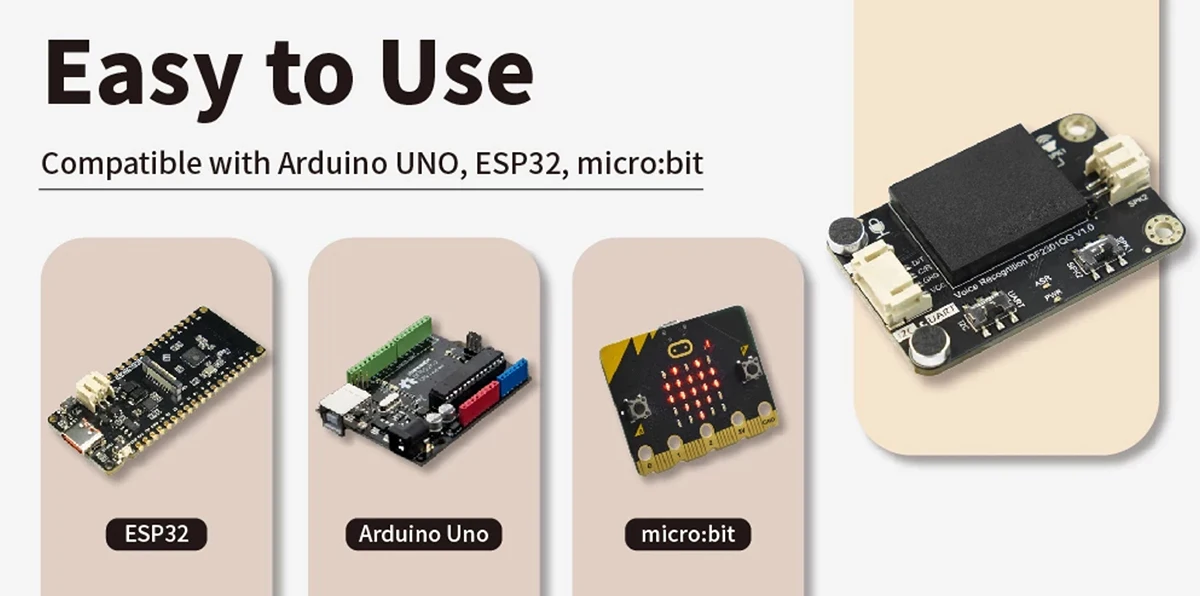
121 Ready-to-Use Words
The built-in commands are commonly used in educational and smart home scenarios, allowing for immediate use without any configuration, such as "Play music," "Open the door," "Turn on the light," and "Close the window." Here is the full list of command words.
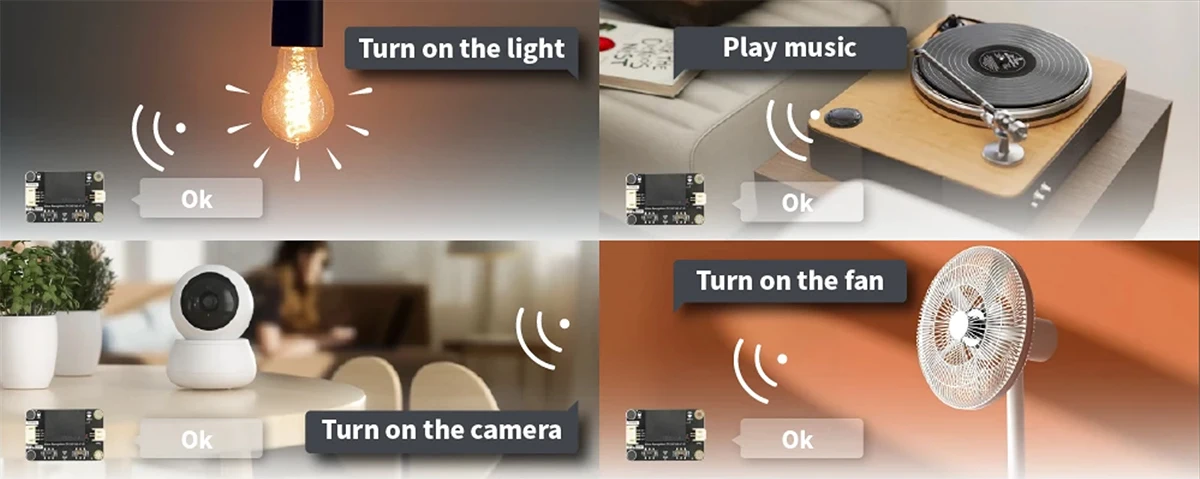
Self-Learning Function
The self-learning function is user-friendly, allowing users to add 17 customized command words. Any language or sound can be trained as a command, providing great flexibility for interactive audio projects.
Teaching the device new commands is simple. Activate the learning mode with the wake-up word, then say "Learning command word," and repeat the desired command three times. After these steps, the device will have learned the new command. Detailed instructions are provided to ensure an easy learning process.
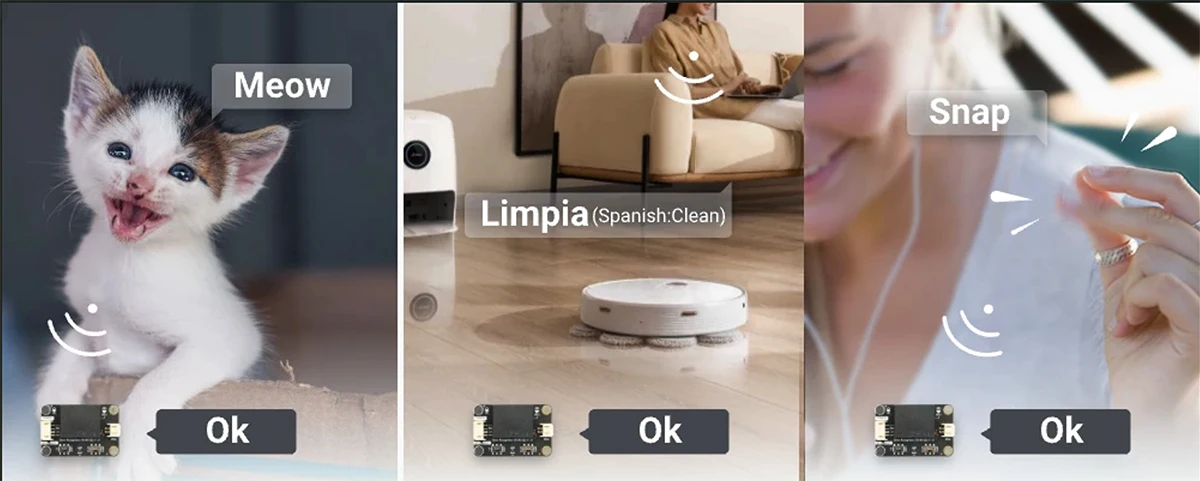
No Internet Connection, More Secure
Users need not worry about their conversations being recorded and uploaded to the cloud. The module functions seamlessly in outdoor projects, schools, and other environments with unstable networks. Unlike existing online voice assistants that rely on cloud platforms and require internet access, potentially compromising device data privacy during use.
High Integration, Saving More Space
The offline voice module integrates an onboard speaker and microphone. High integration saves space and eliminates the hassle of complicated wiring, enhancing the project's neatness and stability.
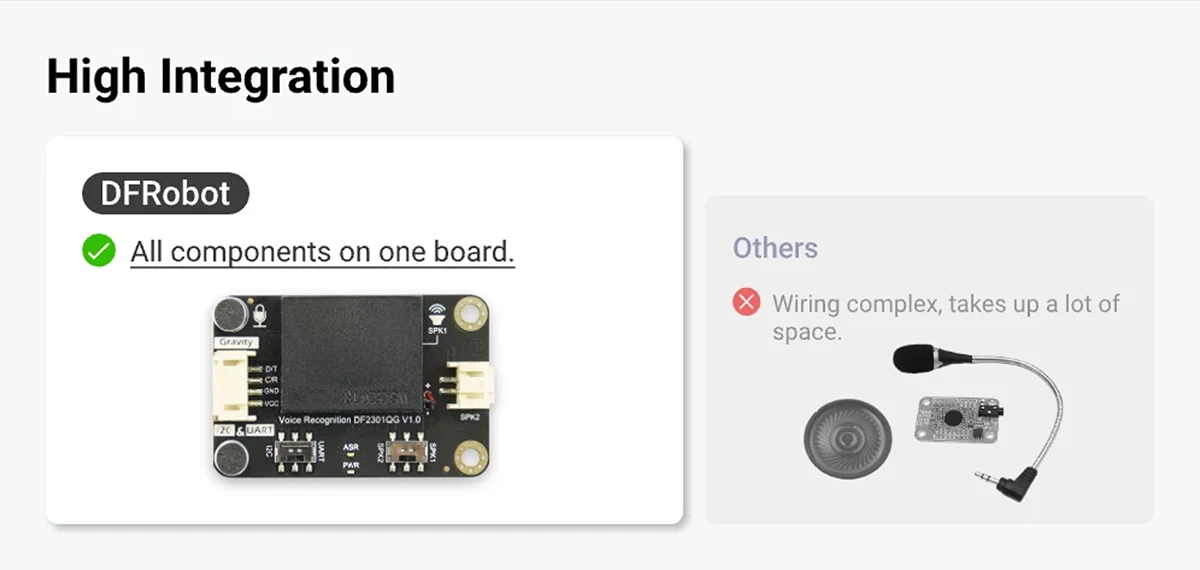
Real-Time Voice Feedback
Users can immediately receive recognition results during use, improving user experience and convenience.
The Offline Speech Recognition Module is an easy-to-use, highly integrated solution perfect for various projects, offering 121 built-in commands, 17 customized commands, real-time voice feedback, and secure offline operation without the need for an internet connection.
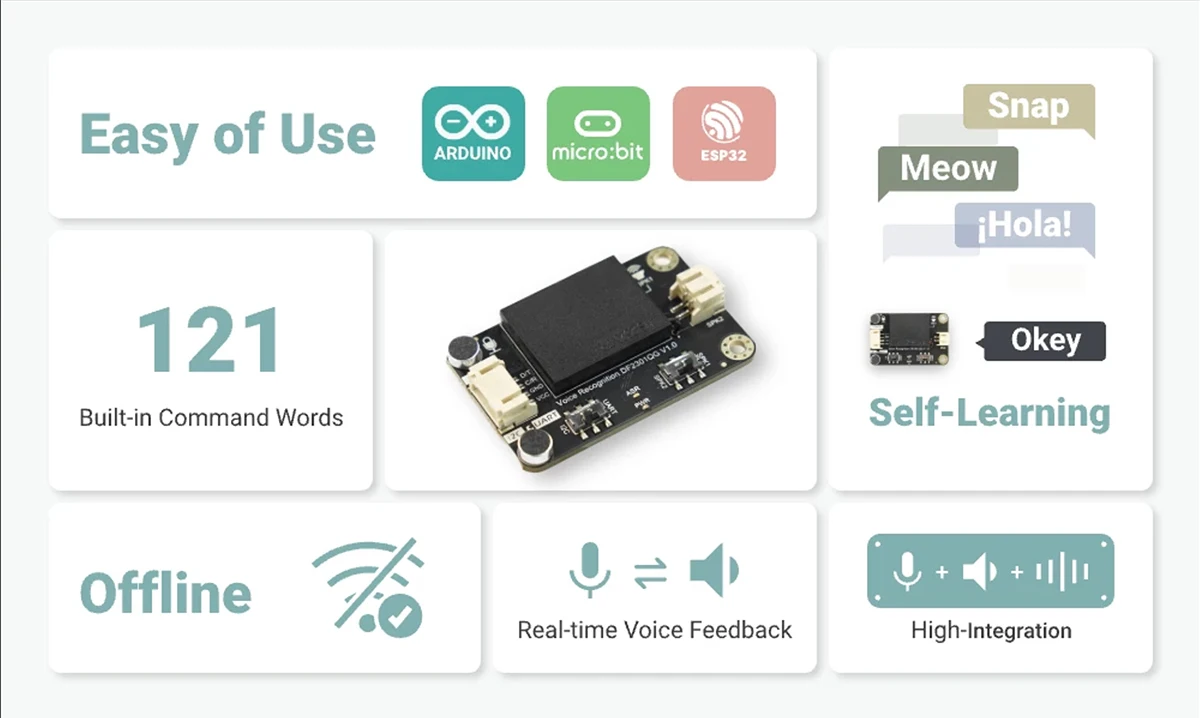
Photos
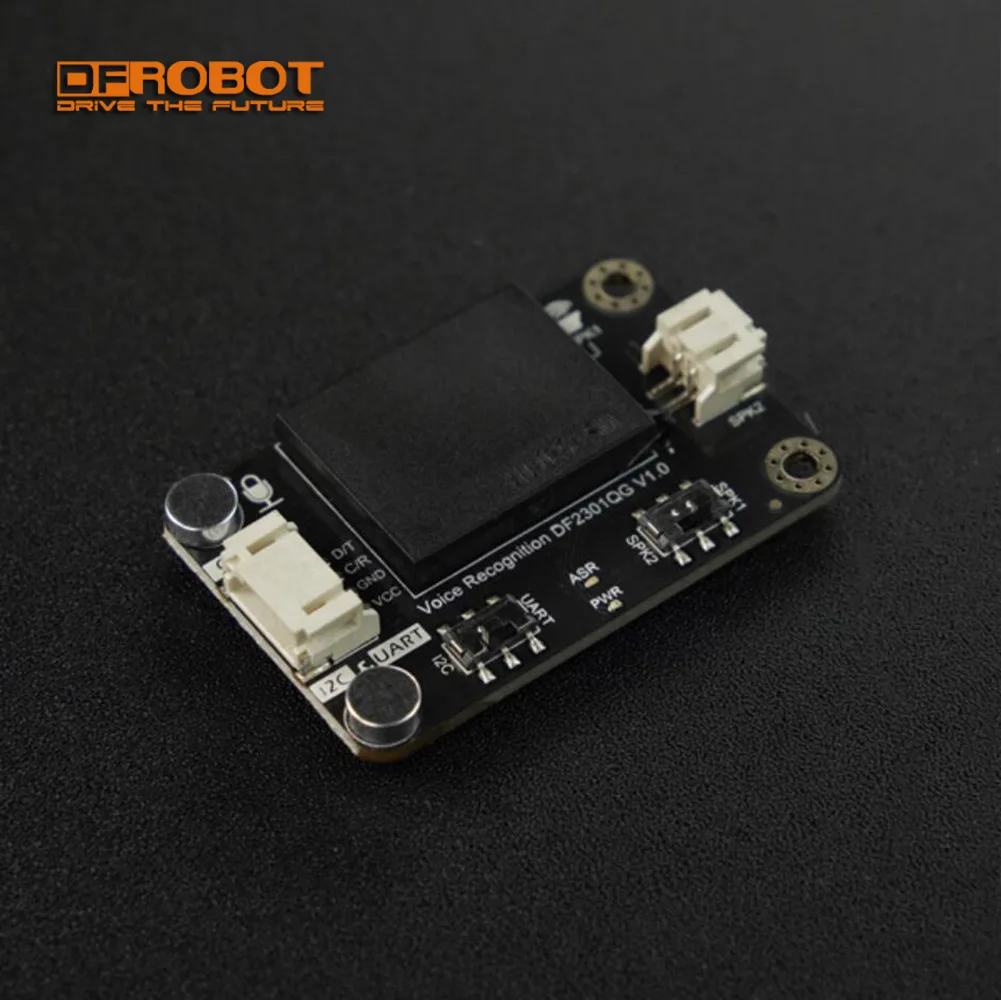
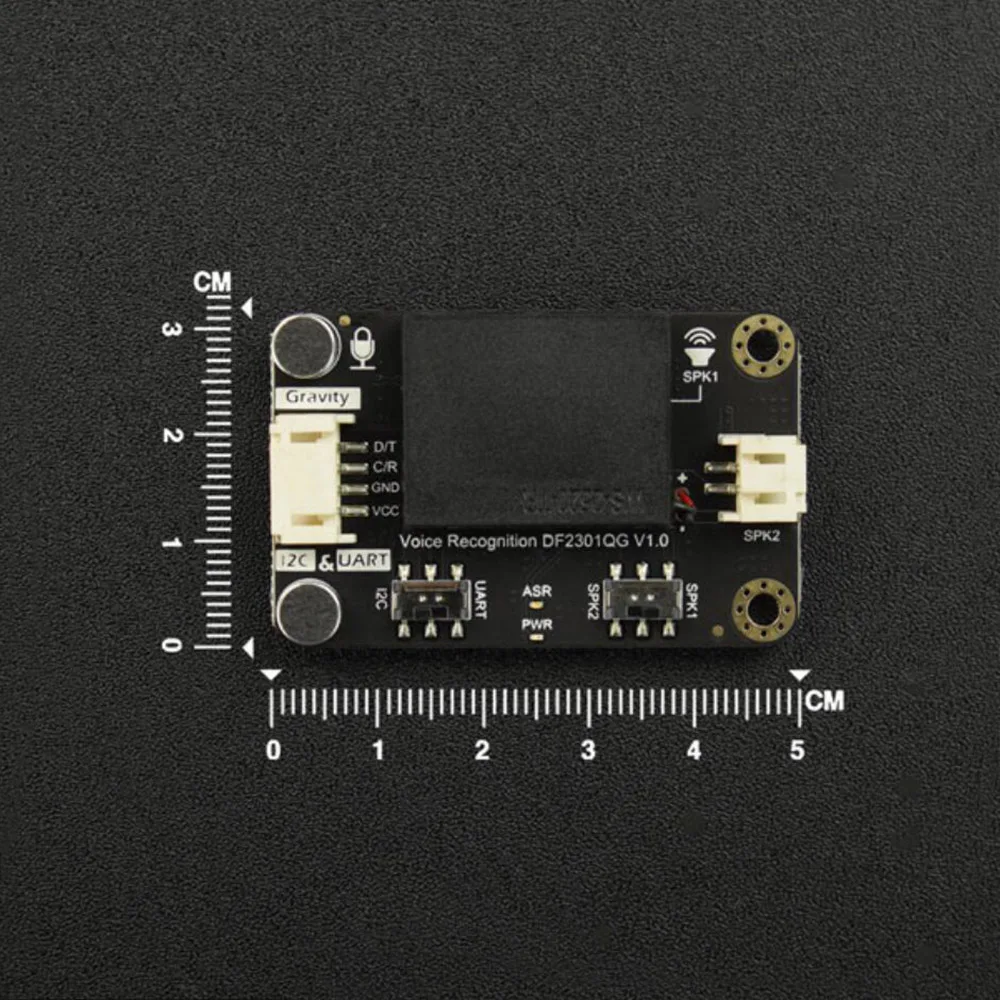
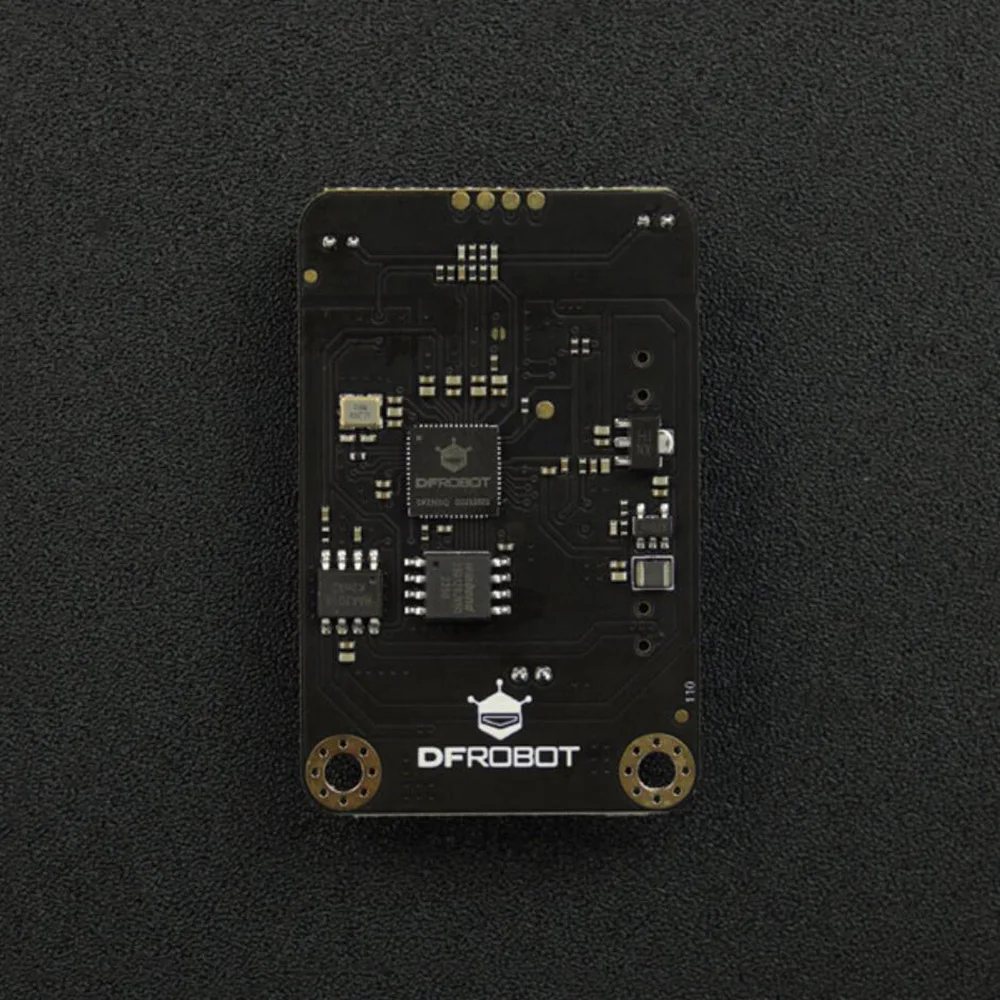
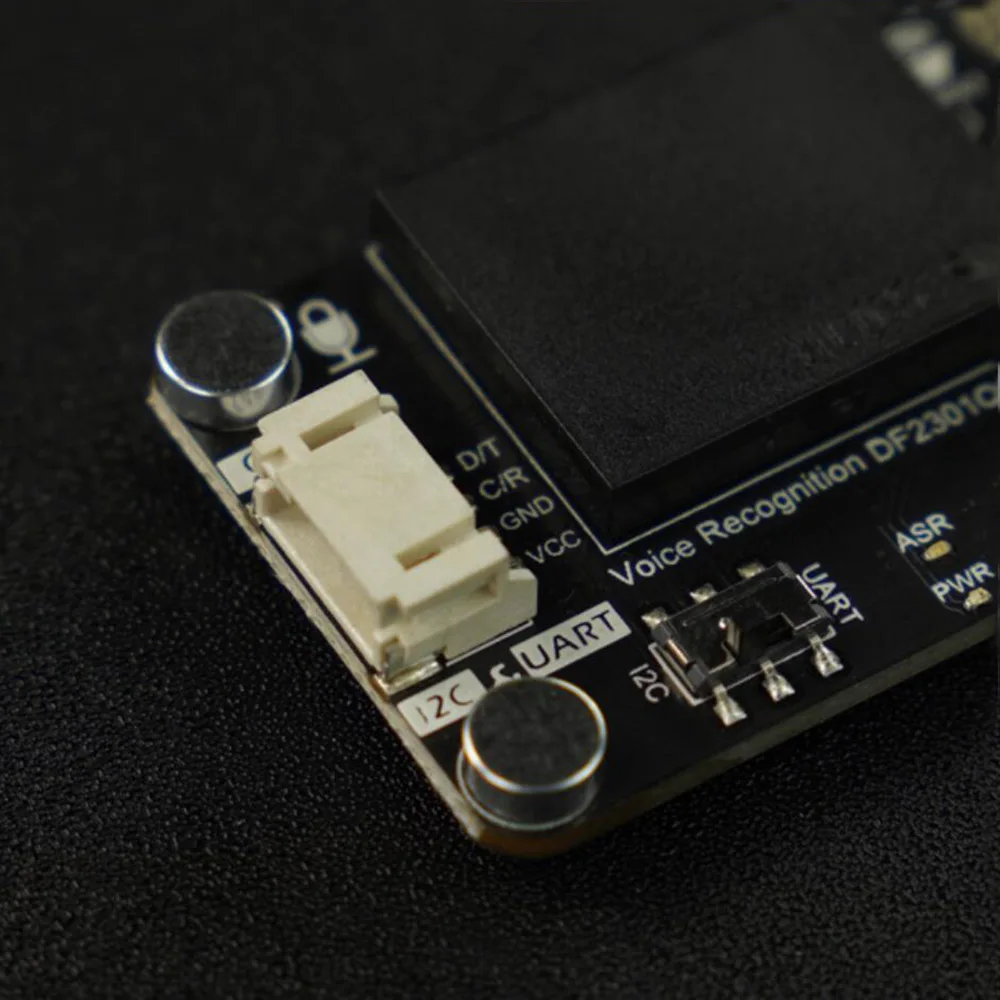
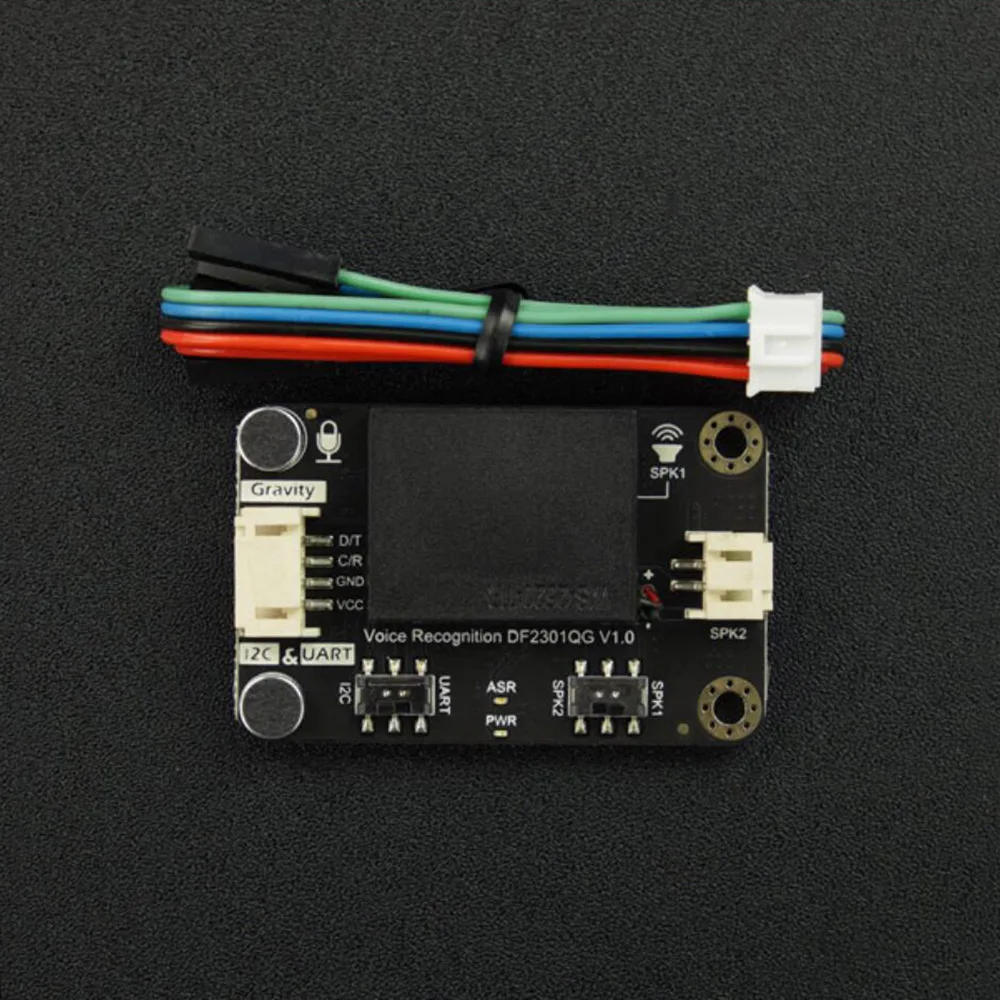
Features
User-Friendly: Plug and play, compatible with Arduino UNO, micro:bit, and ESP32.
121 Pre-Programmed Commands: Ready for immediate use without any setup.
Self-Learning Capability: Supports the addition of 17 customized command words.
Offline Operation, Enhanced Privacy: No network required.
High Integration: Includes an onboard speaker and microphone.
Instant Voice Feedback: Provides real-time recognition results.
Applications
Voice recognition interaction
Voice-controlled terminal
Competition and project development
Specification
Operating Voltage: 3.3 - 5V
Maximum Operating Current: ≤370 mA (5V)
Communication: I2C/UART
I2C Address: 0x64
Fixed Commands: 121
Fixed Wake-up Command: 1
Custom Commands: 17
Learning Activation Command: 1
Onboard Microphone Sensitivity: -28dB
Module Size: 49×32 mm / 1.93×1.26”
Operating Temperature: 0-70℃
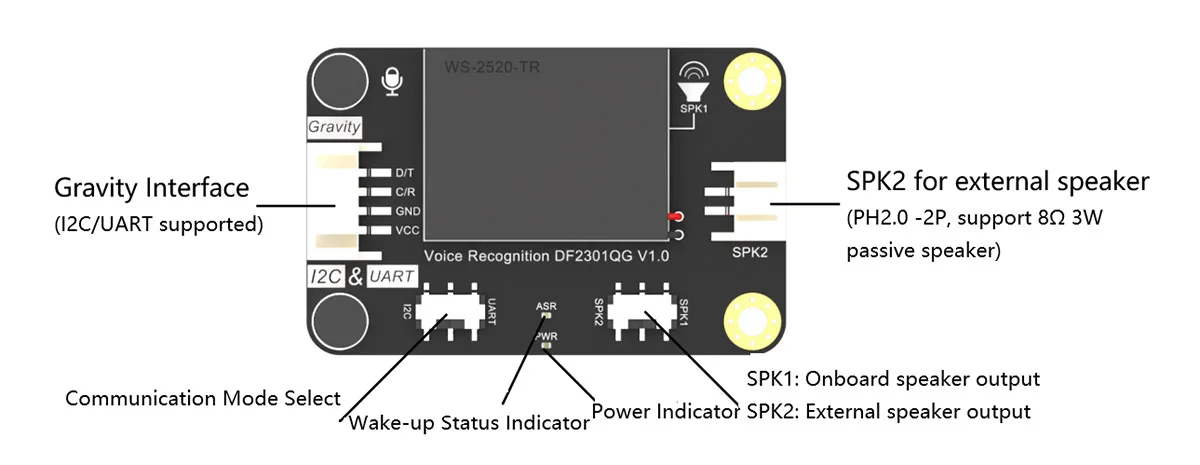
Figure: Wiring Diagram of Voice Recognition Module, Arduino Uno, and LED Light Module - I2C

Figure: Wiring Diagram of Voice Recognition Module, Arduino Uno, and LED Light Module - UART
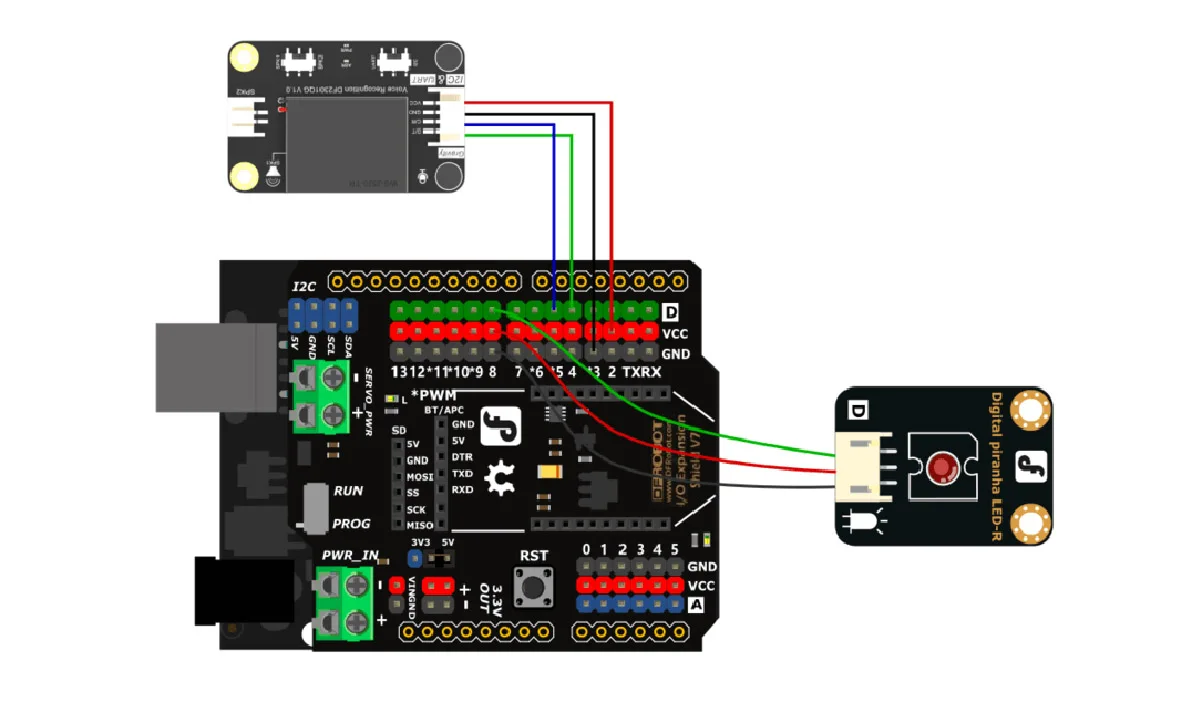
Properly connect the micro:bit motherboard and IO expansion board, and set the communication mode selection switch of the voice recognition module to I2C end according to the diagram below, then connect it to the expansion board.
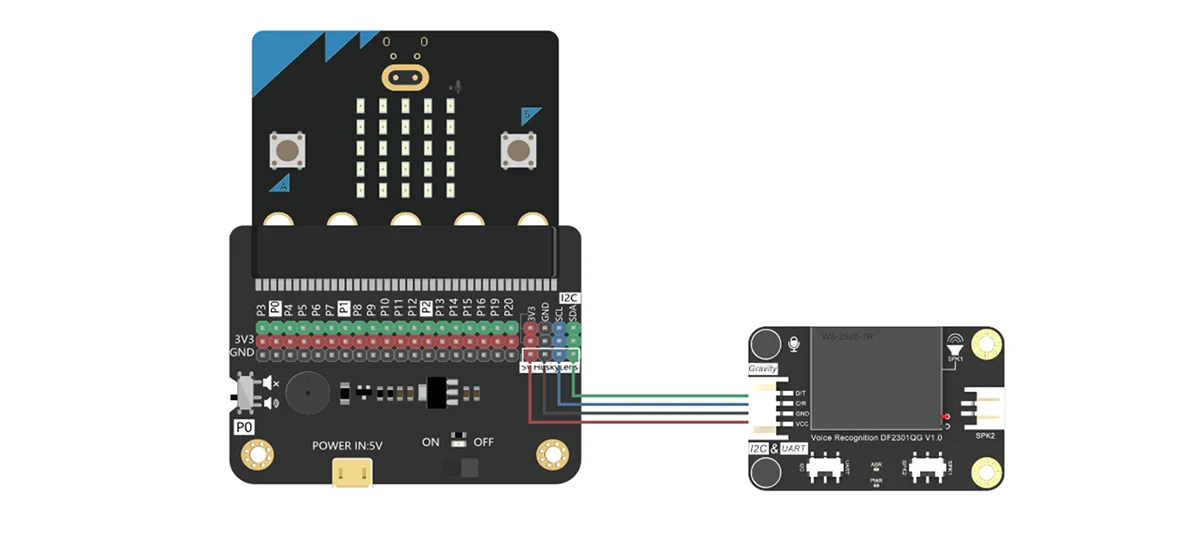
Projects
Project 1: Mastering Voice Commands with Arduino: A Comprehensive Guide
(https://youtu.be/dls0LtSUlCo)
Introduction: Learn how to harness the power of voice recognition with Arduino, creating custom commands for an interactive project using the DFROBOT module, all without needing an internet connection.
Project 2: Raspberry Pi Pico Tutorial - Voice Recognition Module Sensor
(https://youtu.be/k7IjKCNlVqk)
Introduction: Unlock the potential of voice commands using the Raspberry Pi Pico and DFROBOT's voice recognition sensor. This tutorial guides you through setting up the module, creating custom commands, and controlling devices with simple voice interactions, all without internet reliance.
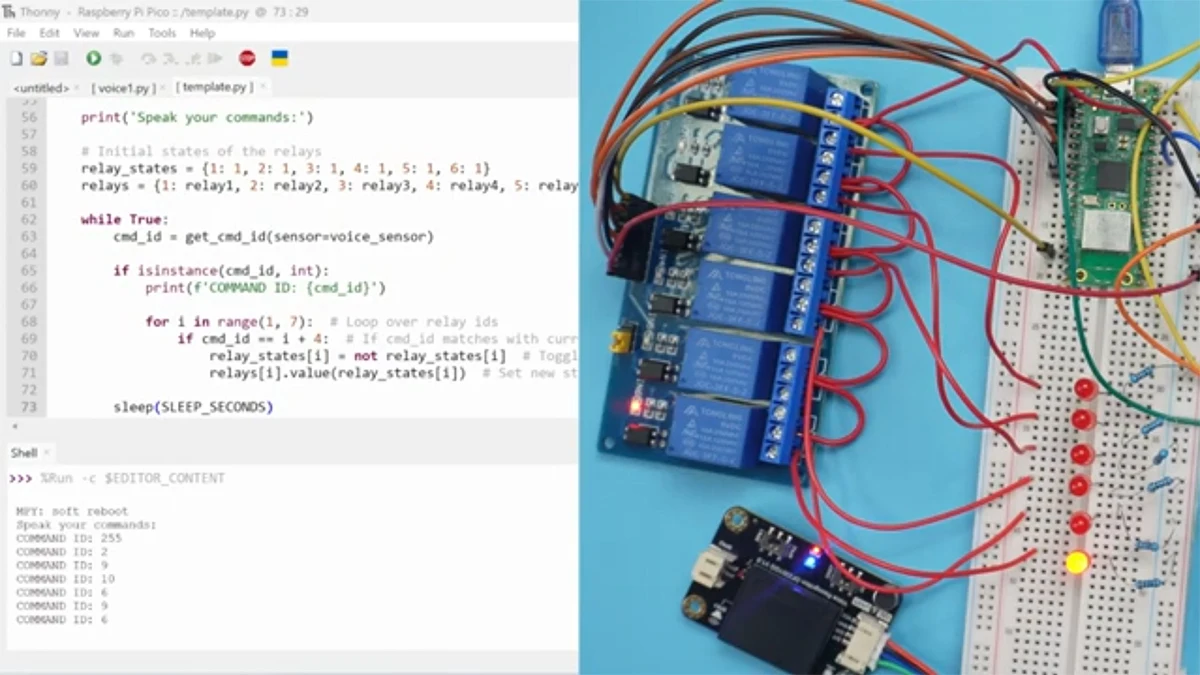
Project3: Build a Voice-Controlled SOS System
(https://youtu.be/NK1D6nIVpms)
Introduction: Learn how to create a life-saving Voice-Controlled SOS System using M5StickC and DFRobot’s Voice Recognition Sensor. This DIY project is perfect for ensuring the safety of seniors at home. With voice commands and instant Telegram alerts, you’ll be able to respond to emergencies swiftly.
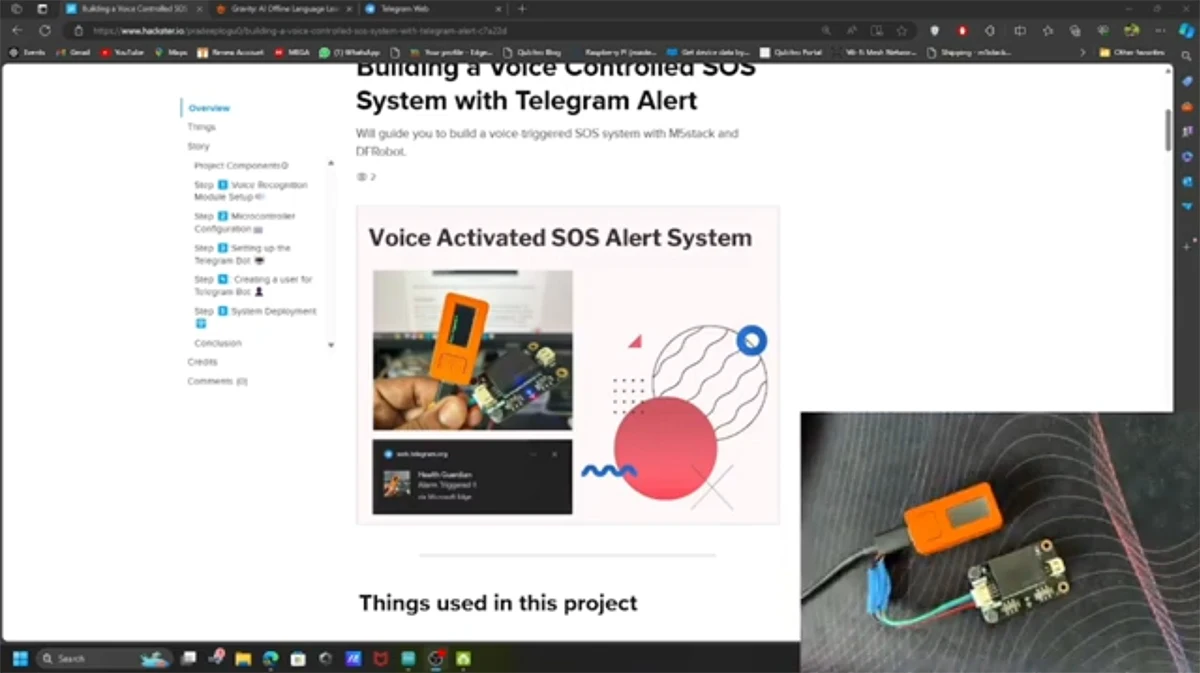
Review: Unlocking Creativity: DFROBOT Offline Voice Recognition Module
(https://youtu.be/RLhK_yZynYI)
Introduction: Discover why the DFRobot offline voice recognition module is hailed as one of the best in electronics, enabling seamless voice-controlled automation without internet reliance.
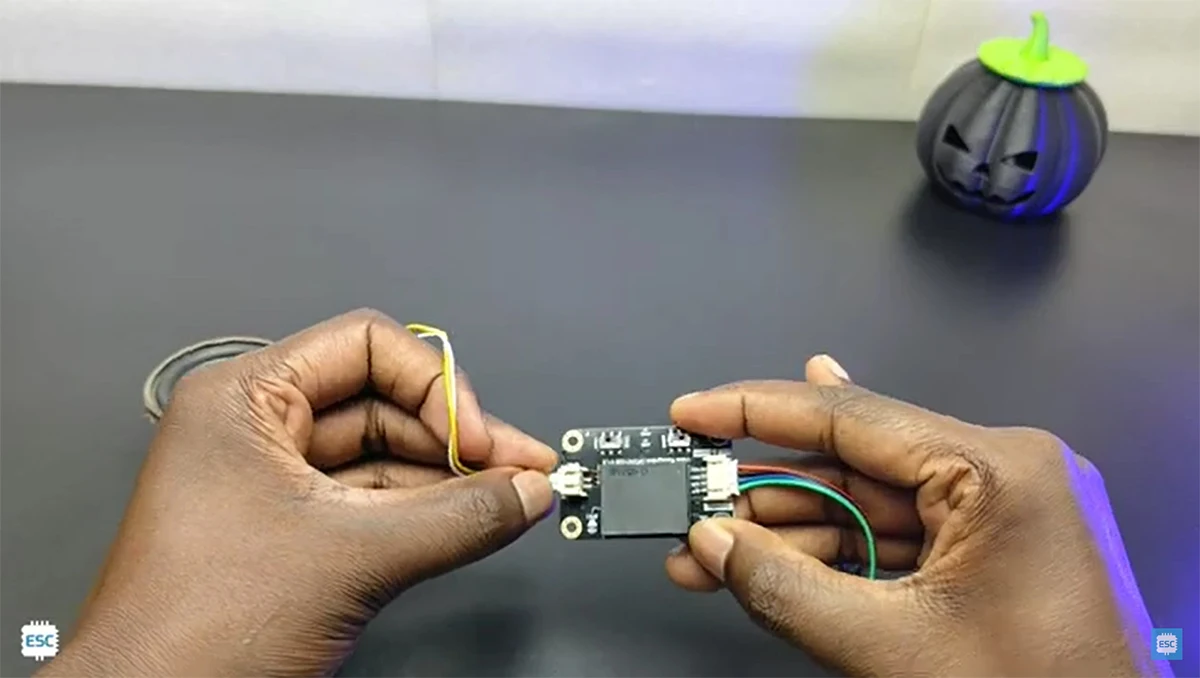
Documents
Product wiki: https://wiki.dfrobot.com/SKU_SEN0539-EN_Gravity_Voice_Recognition_Module_I2C_UART
Command Words List: https://wiki.dfrobot.com/SKU_SEN0539-EN_Gravity_Voice_Recognition_Module_I2C_UART#target_9
Interface Diagram: https://wiki.dfrobot.com/SKU_SEN0539-EN_Gravity_Voice_Recognition_Module_I2C_UART#target_3
Arduino Tutorial: https://wiki.dfrobot.com/SKU_SEN0539-EN_Gravity_Voice_Recognition_Module_I2C_UART#target_6
MakeCode Tutorial: https://wiki.dfrobot.com/SKU_SEN0539-EN_Gravity_Voice_Recognition_Module_I2C_UART#target_7
Shipping List
Gravity: Voice Recognition Module - I2C & UART x1
Gravity-4P I2C/UART Sensor Connector x1

























































